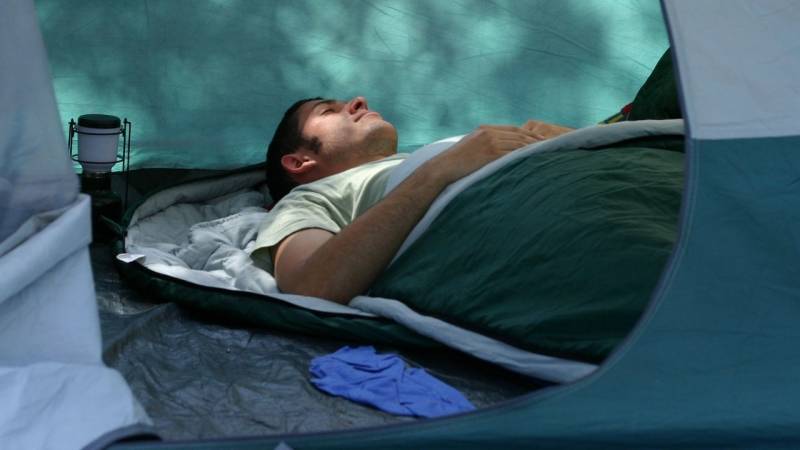
Sleep soundly, wake up rested – a ranger's most important skill
👉 The key facts from this guide
- Avoid mosquito bites by using mosquito nets, mosquito sprays or natural repellents such as essential oils.
- Choose your sleeping equipment carefully to ensure comfort and warmth. A good sleeping mat and a suitable sleeping bag are essential.
- Prevent heat loss with appropriate clothing and protective layers such as a tarp or tent.
- Use firewood and smoking techniques to repel insects and generate heat.
- Use earplugs or in-ear headphones to block out disturbing noises and sleep more restfully.
- Recognize that each person has different preferences and needs. What works for one person may not work for another.
I have one rule: every piece of equipment should ultimately help me develop that one top skill.
Take a look at what Mors Kochanski says:
The quality of a survival kit depends on how much it can help you sleep. If you can sleep well at night, you've made it. - Mors Kochanski
Do you also know that when you are with others and sleeping in the wilderness, there is always THAT one question:
"How did you sleep?"
I'll be honest: my first night is usually as bad as the kebab from the place around the corner.
It is not until the second morning that it becomes clear how the nights really were. Who is hanging on? Who is full of energy?
We all have our bad nights in the woods. But an experienced woodsman has developed techniques to achieve what beginners only dream of: a restful sleep.
Owls screech, foxes bark, and curious animals come to visit. What did you expect? After all, we're sleeping in their "living room".
Now let's take a look at techniques to help you sleep as deeply as Sleeping Beauty.
Sleep Saboteur #1: Mosquitoes
Nothing is more annoying than the unmistakable, torturous buzzing around your face in the dark.
A tiny mosquito can ruin your entire sleep.
It used to be this way for me:
I lay motionless in the hammock.
A hum gets closer and stops as the bloodsucker lands.
I hit it. And miss. And curse.
The attacks last until dawn.
My forehead itches because I already have three bites there.
In the morning, my friends thought I've got the measles overnight.
Do you know this feeling?
Here are some modern and primitive ways to sleep well during insect season.
Mosquito Nets
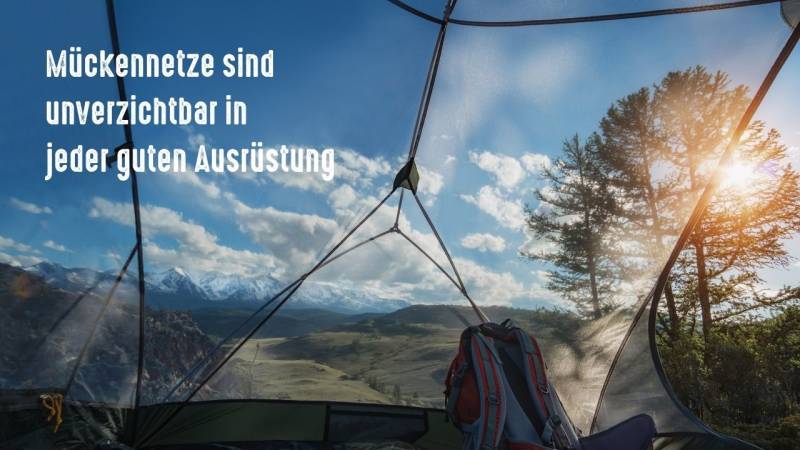
Mosquito nets are essential in every good summer equipment. They weigh very little and protect you from even the tiniest mosquitoes.
Nowadays, even hammock manufacturers are thinking about mosquito nets and I would NEVER sleep without one again. Every good tent also has a mosquito protection.
One disadvantage of mosquito nets is that - depending on how tightly they are woven - they also block airflow. This means that it stays warmer under the net.
Take a look at my hammock recommendations here:
- Ultra-Light Hammock with Mosquito Netting for Travel and Camping (cheap and sufficient)
- DD Frontline MC Breathable Travel Hammock with Mosquito Netting (expensive, top-rated, brand)
- AMAZONAS Ultra-Light Hammock Moskito (pricier, light, top-rated, brand)
Mosquito Spray

DEET is the industry standard for insect repellent. It is an active ingredient from the group of repellents with insect-repelling properties against mosquitoes, mosquitoes, ticks, horseflies, mites, lice, tsetse flies and other flies.
I like to use Anti Brumm® Naturel because it works well for me and even tears ticks off me.
The problem I have with this chemical is two things:
- I smell like a lemon tree in bloom and anyone who comes near me asks who smells so strong.
- DEET can damage certain plastics and coatings. These include vinyl, elastane, rayon, acetate, and some leathers. I don't really want that on my skin.
So, I only use DEET when necessary, like when I'm surrounded by 50 mosquitoes or see the first tick after 5 minutes.
If you decide not to use DEET, try a mixture of sunflower oil, rosemary oil, peppermint oil, and lemon oil. 100% natural and supposed to help.
Generally, the following plants with their essential oils help repel mosquitoes: mint, eucalyptus, lemon balm, thyme, basil, rosemary, lavender, tomatoes, and garlic. Mosquitoes don't like the smell of the plants, and the smell of the plants also masks the body's own odor.
Smoke and fumes
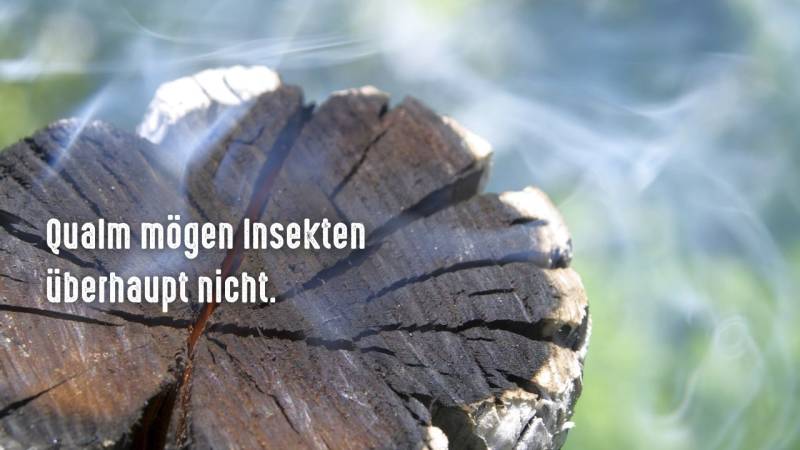
If you can't find plants that repel mosquitoes, you can still keep them away with lots of smoke.
Have you heard of Punkwood? It's that dry, rotting wood that feels like Styrofoam.
Once you start your fire, find some Punkwood and light it. You'll notice that it smolders but doesn't burn. The smoldering produces smoke.
And insects dislike this smoke as much as children dislike their brussels sprouts.
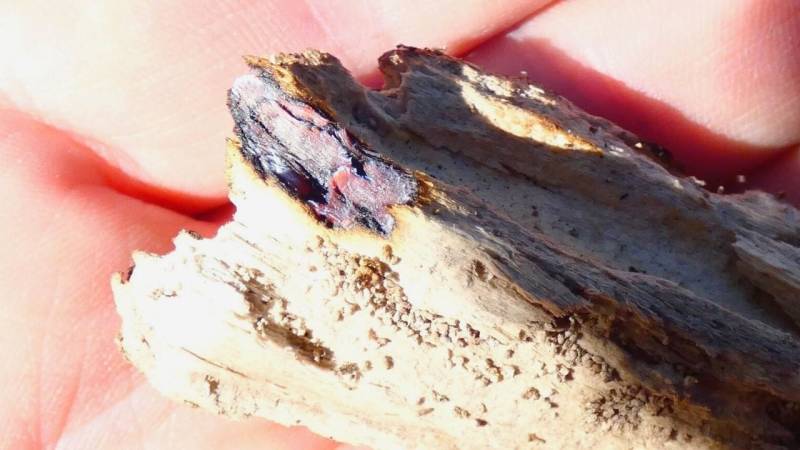
If you have a metal container, cover the bottom with glowing coals. Then put the Punkwood on top of it. Now you have a "smoke pot" that is mobile. Place it in a way that the smoke goes towards you.
It is perfect if there are a few holes in the bottom of the container, so an old can is best for this purpose.
Alternatively, you can attach a large piece of Punkwood to a stick and place it in the camp. Of course, you have to make sure that no embers fall down.
Sleep Saboteur #2: Sleeping Equipment
I asked people on my YouTube channel how they like to sleep. Take a look:
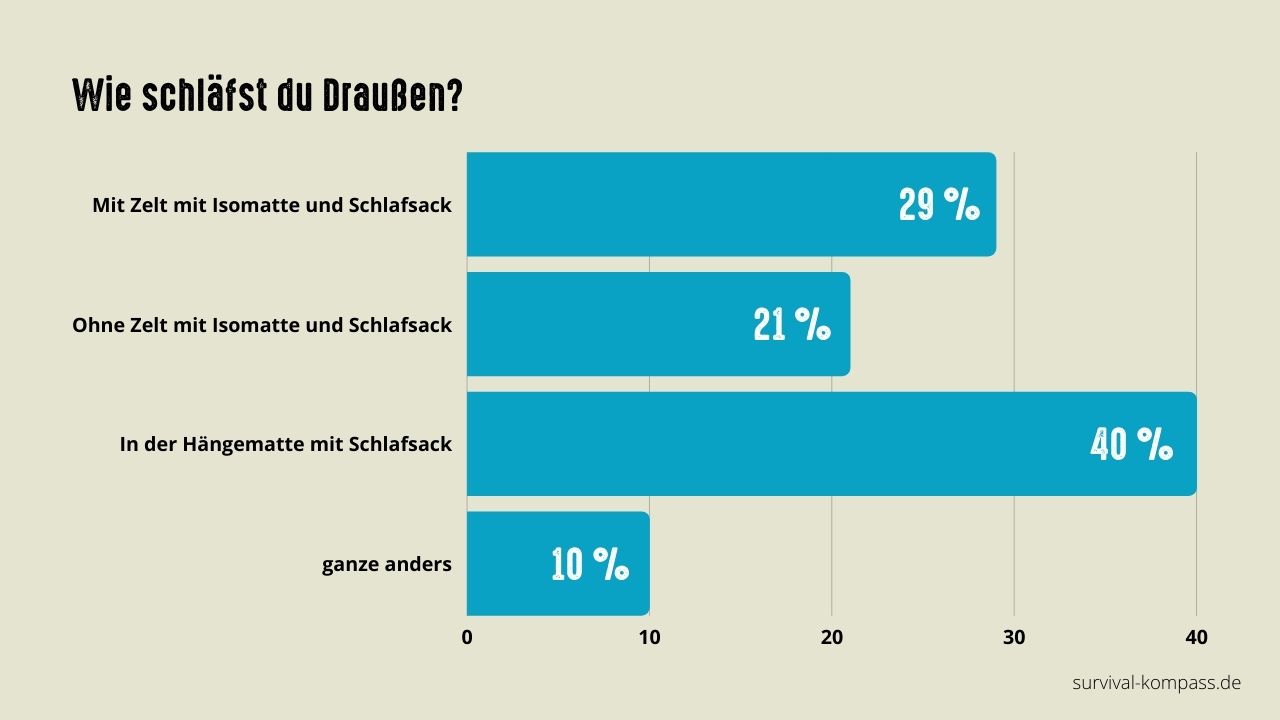
Your personal preferences determine whether you hang in a hammock, sleep on the ground, use a sleeping bag, or a woolen blanket. Because I have the choice between the ground or the hammock, I usually hang around in the camp.
In my article "Hammock or Sleeping on the Ground?" I compared both types with their advantages and disadvantages.
When camping by car or motor home, weight doesn't matter. But if you're on foot, it requires a little more thought about your sleeping equipment.
The temptation is great to buy this or that indispensable equipment. But remember: You're not a donkey who can carry kilos of equipment into the woods.
So, pack light equipment that is good enough that you don't lose warmth, primarily when sleeping.
When your body comes into contact with cold or wet ground, it cools down. Sleeping cool is one thing, but sleeping cold can be deadly.
I use a self-inflating sleeping pad (here's my top list) both in my hammock and on the ground when temperatures drop. If I want to be more comfortable, and I'm traveling by car, I also use an air mattress or regular mattress.
Read more: Can I use a regular air mattress for camping?
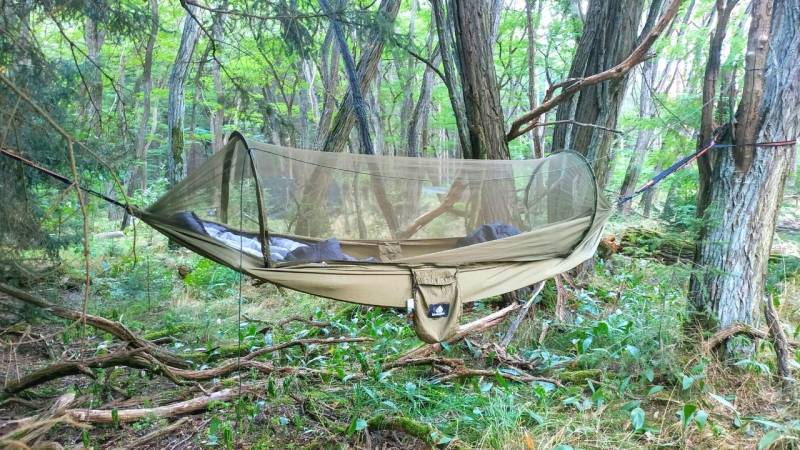
Other primitive insulators are available in the forest. A 15 cm layer of compacted leaves, pine needles, or other fluffy material can serve as a barrier between you and the cold ground.
"One of the blessings of a wilderness experience is that it shows us how few things we need to be perfectly happy." – Horace Kephart (American travel writer, known for books such as "Our Southern Highlanders" and "Camping and Woodcraft")
Tip: If you're on the road, you can also sleep in your car. It doesn't matter where or how you sleep, as long as you're comfortable.
Sleep Saboteur #3: Heat Loss
I sleep most comfortably in cool weather. But to achieve that, I have to take a few steps.
Here are the most important facts you should know for regulating your temperature:
- When warm molecules collide with neighboring cold molecules, heat travels from hot to cold.
- Air or water flowing over the skin removes heat from your body.
- Your energy (body heat) is transferred from your body to the room and absorbed by a colder environment. Heat, light, and sound propagate through waves, particles, or radiation.
- Insulators are materials that are poor heat conductors. Air, fabric, and wood are poor conductors but good insulators.
To sleep comfortably in the woods, pay special attention to the following:
Clothing
Since we as humans do not have fur or feathers, your most important protective layer is your clothing. Clothing creates a layer of air pockets between the outer layer and your body. These traps warm air that your body radiates.
Our head and neck are responsible for giving off our body heat to the environment. Therefore, wearing a hat keeps your feet warm.
And there is much more to consider when sleeping outside in the winter for the first time.
If you sleep in a tent and sleeping bag, I strongly recommend my guide on "staying warm" here. There, you will learn over 18 tips for staying cozy warm in your sleeping bag.
Recommended Reading: Sleeping outside in winter - with these proven tips it will definitely work
Shelter
Outside of clothing, an additional protective layer can consist of a tarpaulin (like a tarp), a tent, or natural materials.
When choosing your camp spot, keep in mind the 4 W's: Wind, Water, Wood, and Widow Makers.
Read more details about selecting the right spot in my article "How to Find the Ideal Location for Your Bushcraft Camp".
By doing so, you greatly increase your chances of getting a good night's sleep. I like tarps (here is my top list) for their flexible configurations, and you can even make one yourself. Other advantages of tarps include:
- Lighter than tents
- Quickly set up when rain is on the horizon
- It can be set up to collect rainwater at the same time
- Perfect companion for hammocks
- Easy to build to block wind, rain, or snow - or open to use wind in hotter climates
- You can make your own tarp from tent material
- A fire in front of the tarp provides warmth
- Cheaper than tents
- It can be sewn yourself
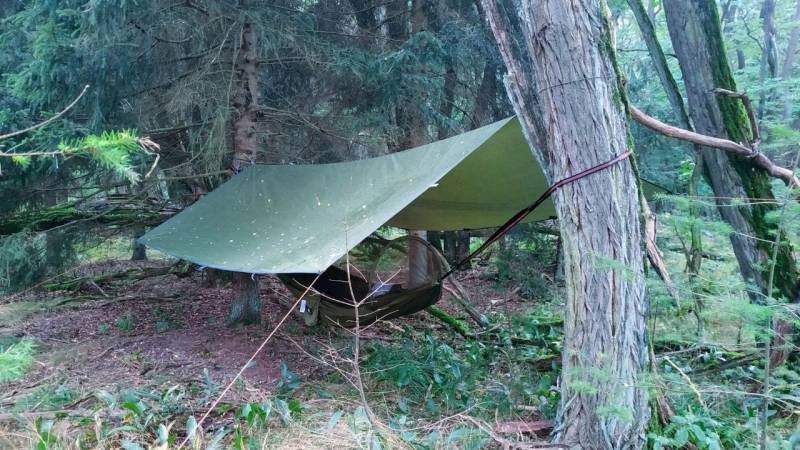
Here are a few tarps that I recommend:
- Unigear tent tarp for hammocks (inexpensive, about 1.1 kilos)
- DD SuperLight tarp (only about 460 grams, but more expensive)
- Sea to Summit Escapist 15D tarp (with inner tent, expensive)
Reading tip: Are you thinking of buying a tent? Then read this ultimate guide to tents first.
Other sleeping aids
- First, I collect firewood so that I can make a fire in the evening. Before going to bed, I wash myself a little. After washing, I dry myself by the fire and then go to sleep - usually like a baby.
- If you are sensitive to noise, bring earplugs or in-ear headphones and listen to your favorite song to fall asleep. This trick has often helped me through the night when dogs barked endlessly or the neighbor snored too loudly.
- Woolen socks for sleeping accompany me on cold overnight trips. I only wear these clean socks in bed.
- If you feel unsafe, sleep near other people.
And as so often, many aspects depend on you yourself. Some sleep deeply in cold weather, while others cannot sleep during a full moon.
You only make your own experiences when you go out and learn. For my part, I can hardly wait to spend the next night in the great outdoors.
For more information, also read my article "The first night in the woods: how to sleep well in your camp". There I address dangers such as wild boars or insects as well as strange noises and your overall attitude.
And now to you:
What are your best tips for a restful sleep in the woods?


Author of the guide
Martin Gebhardt
Hey, I'm Martin. On my blog, you will learn the basics and numerous details about living in the wild. I think survival, bushcraft and the good life in nature are the keys to happiness. Find me here on Instagram or on YouTube. You can find more about my mission on the About Me page.
Was this guide helpful?
24 people found this guide helpful.
5.00 out of 5 points (24 Ratings)
Comments (0)
This post may contain affiliate links. So if you click on the links and make a purchase, I will receive a small commission at no additional cost to you. Click here, to learn more about it.


